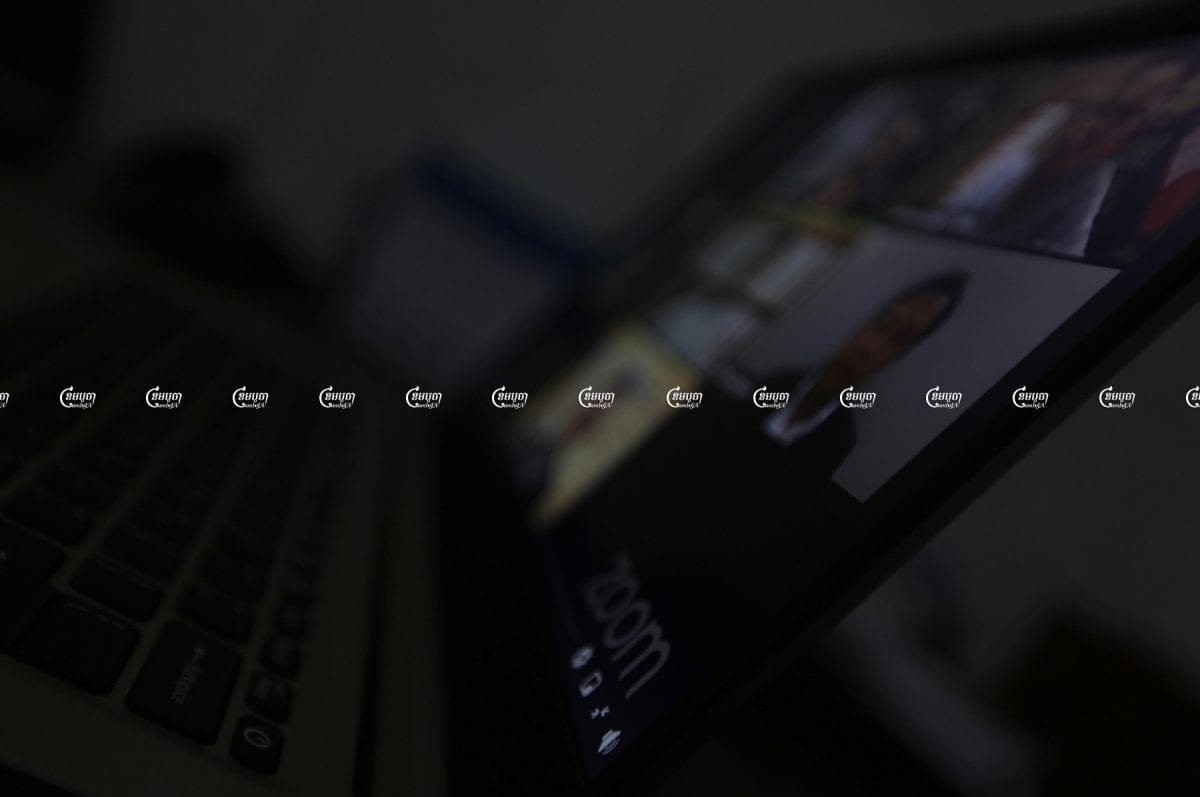As authorities jail multiple activists for their online speech, rights groups and civil society members are decrying the government’s digital surveillance and criminalization of speech.
About two weeks ago, officials arrested three members of the environmental protection group Mother Nature and later used a video clip allegedly taken from an online Zoom meeting and posted to social media to charge the activists with plotting and insulting the king. Last week, the 16-year-old son of a former CNRP official was charged with incitement and insulting public officials while chatting on the Telegram messaging app.
Cheang Ly, a member of the environmentalist Prey Lang Community Network in Stung Treng province, told CamboJA that she’s concerned her group could be targeted with similar tactics of eavesdropping and official accusations.
“For me, I am worried because our team always holds online meetings to discuss environmental issues and illegal logging,” she said, adding that the network regularly uses popular messaging apps to communicate. “We are worried that when we are talking about this issue, they will accuse us of being political.”
Chak Sopheap, executive director of the Cambodian Center for Human Rights (CCHR) said the Cambodian government has over the past few years significantly expanded its legal arsenal, adopting measures that grant it overbearing surveillance powers with minimum oversight.
“Recent developments have shown these legislative instruments have frequently been misused to target government critics, confirming human rights groups’ fears that these instruments are governmental tools for oppression,” Sopheap said.
Digital security trainer Ngeth Moses said internet users can reduce their risks online by only using licensed applications and programs on their devices, as well as regularly updating operating systems to the latest versions. Moses, who writes about online security on his blog, also recommended using a VPN, or virtual private network, to safeguard their data from those who would harvest it, whether for commercial or political ends.
A CCHR polling effort from December 2020 found that 52 percent of all 790 respondents across the country said they felt somewhat unfree to speak on social media. A poll from October found that 40 percent of leaders from 178 included civil society or trade union groups said that a government official had monitored or surveilled their organization’s activities in the past year.
The survey suggested 75 percent of them felt this monitoring was excessive or interfered with their groups’ activities.
